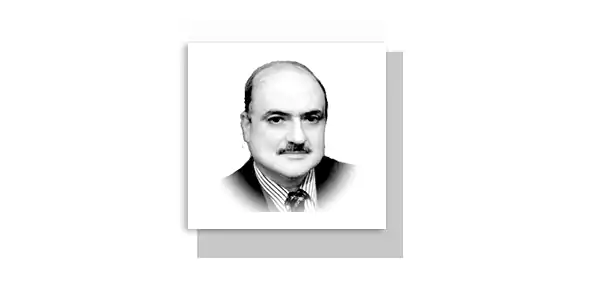THE proverbial man-in-the-street is learning to scrape through the hard way. Whether or not he comes through unscathed or even survives the exercise is the moot point. There is little on offer in the nature of consolation. The pain is accentuated by the fact that it is only the lowly man-in-the-street one can easily identify oneself with. Bereft as he is of the knowledge of higher economics – macro or otherwise – and shorn of practically all that man is supposed to live by, his principal concern is less to achieve the next notch in ‘per capita income’ and more to keep body and soul together until the next salvo. The question is: where does he go from here, if anywhere?
Looking over the shoulder, the man in the street recalls the distant rosy promises (read statistics) hurled his way. And yet he somehow never could get rid of the queasy feeling at the pit of the stomach that “there is something rotten in the Kingdom of Denmark”. He could feel that his lot was sinking rather than rising. With the prices of everyday commodities shooting up through the ceiling, he lived on hopes that they would come down with the fall of the international price of crude. They did not. As he now decides on the unkind cuts in his family’s daily intake, can one blame him for wondering what went wrong and where?
Meanwhile, looking at the macro picture, poverty keeps on increasing, just as the rich keep on getting richer. Add to this the fact that the economic czars of the country have long been working in a frenzy to paper over the cracks, rather than tackle the malaise, and you have a picture that is getting murkier and murkier with every passing day. Fuel, electricity and gas are in short supply. The water crises – alternating between scarcity and surfeit – take a heavy toll. The cost of living is skyrocketing, just as the purchasing power of the common man remains precariously close to rock bottom.
The portents hardly look promising. The price of property has boomed to high heavens; corruption has touched hitherto unachieved highs and shopkeepers merrily keep on raising the prices of necessities at will, GST or no GST. Sources of water supply are being contaminated with impunity, while the price of bottled water and imported bottled drinks spiral steadily upwards. Parents are denied places for their children in public sector schools, while the Higher Education Commission has poured millions into hair-brained schemes to produce a handful of PhDs. Private Universities are sprouting like wild mushrooms to cater to children of the chosen few who have their visions fixed across the frontiers. What is the man-in-the-street to give credence to then: the hogwash of the statisticians/economists in the pay of the authorities, or the facts of life? The priorities of the nation appear to have gone horribly awry. Should our planners, – such as they are – not be paying attention to curing the ills besetting the common man rather than nurturing illusory statistics?
The man-in-the-street understandably feels let down. He finds he is being shortchanged at every step. The web of statistics and the rosy picture of the distant future macro-economic development spun before him notwithstanding, what is he to make of the contradictory statements coming his way in the field of the security of the state, he has loved and cherished? Needless to add, it is he alone that is called upon to bear each burden. The powers that be appear to have made a hash of the national priorities.At the time of the infamous U-turn, the man in the street was told that the country’s salvation lay down the CBM path. He swallowed the glib talk of the spin-doctors and the Foreign Office spokespersons – hook, line and sinker. Time and again, he was informed that there was more to the ‘composite dialogue’ than met the eye. In his naiveté, he not only swallowed that line but also enthusiastically applauded every time the oracles informed him that light was discernable at the end of the tunnel.
And now, he is left groping, wondering where the mirage of honourable peace with our neighbour that had been flashed before his tired eyes has vanished. All that he can discern is tattered bits of tape that had been used to paper-over the ever-widening cracks in the otherwise rotten edifice.
We are all what we have been brought up to be. Such is the way with all species. One can hardly expect fish to thrive in desert sands. The problem is that we have to deal with not natural environment but contrived and man-made environmental conditions. When a segment of the people is brought up in bubbles, so to speak, where the very atmosphere is conveniently controlled to the optimum degree, subjective rather than objective considerations take hold.
One is neither an economist nor a planner. Nevertheless, one has come to believe that no people can either survive or prosper on a diet of statistics alone. Mere percentages thrust down the throats of common folk just will not do. When targeting the man-in-the-street, let our advisers and planners eschew the habit of talking of macro or micro-economic indicators or of strewing statistics in his path. Let them, instead, measure the annual progress of the country in terms of easy to understand (and assimilate) targets. What interests the common man is the trickle-down effect of the economic policies, not mere platitudes.
Be that as it may and as demagogues indulge in earth-shaking oratory promising the moon, the wretched man-in-the-street still holds on to the shreds of hope that the future would bring good cheer. Optimism dies hard. The man in the street is learning to live through the hard way. For him this is the only way. He has known no other.
— The writer is a former Ambassador and former Assistant Secretary General of OIC.
Email: [email protected]










